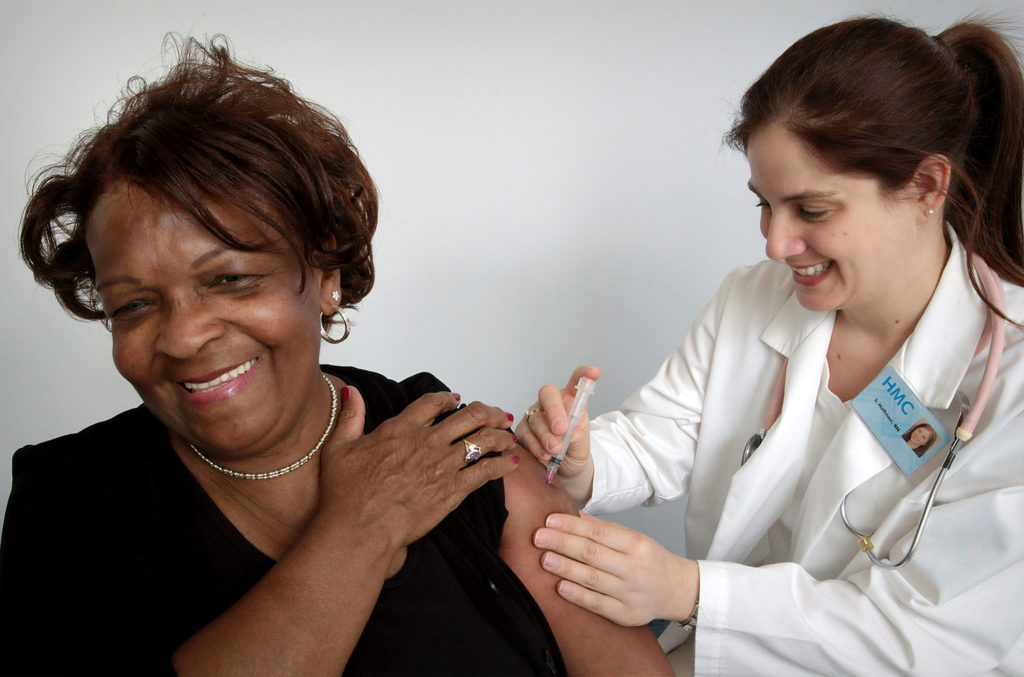World Immunization Week: April 24, 2022

Promoting the use of vaccines to protect individuals against disease is the focus of this important week.
On Sunday, April 24, 2022, World Immunization Week commences. What exactly is World Immunization Week? This period of time “aims to highlight the collective action needed and to promote the use of vaccines to protect people of all ages against disease.” One of the most significant achievements in the public health sector, childhood vaccines have prevented more than 100 million cases of diseases since 1924.

During the current pandemic, the topic of immunizations has become quite dividing. Fear and ignorance seem to run rampant while education and knowledge on the topic of immunizations are not given their proper light. However, immunizations are important, and the World Health Organization (WHO) works with countries around the globe to raise awareness of the value of immunizations and works to make sure governments throughout the world receive the proper guidance and support in order to implement superior vaccine programs. Throughout this dedicated week, the goal is to immunize more people and their respective communities against diseases that are preventable.
According to the WHO, immunization creates a worldwide success story, saving the lives of countless individuals every year. Vaccines work by partnering with your body’s own defenses to build protection against disease and illness. As of now, we have vaccines that prevent more than 20 life-threatening illnesses and diseases. This helps people of all ages live healthier and longer lives.
The WHO also reports that vaccines prevent up to three million deaths annually from diseases such as measles, influenza, tetanus, diphtheria, and pertussis. Immunization is a vital part of your primary health care agenda. It is also your right. Consider it an investment in your health.
Sadly, many people around the globe do not have access to vaccines, and in some areas of the world, progress in this regard has either slowed down or sadly, even reversed.
Diseases have not gone away, but vaccines can keep you safe and healthy. Here are seven important reasons to get vaccinated:

- The viruses and bacteria that contribute to disease and illness can be passed on to the unvaccinated. Granted, many of the diseases are not common in the United States but traveling can spread the progression of them.
- Just like a healthy diet and regular exercise, vaccines play an integral role in your overall health.
- The approval process in the United States for vaccines is quite comprehensive. Further, the potential side effects from vaccines are less severe than the illnesses and diseases they are made to prevent.
- Don’t assume because you are young and/or healthy that you cannot get sick. While older adults and infants are more susceptible to diseases, that doesn’t mean the younger and healthier populations should not get vaccinated. Infections and complications can still strike those demographics.
- Remember when you become ill, you are putting others around you at risk. This includes your children, grandchildren, and parents. Did you know that adults are the most common source of whooping cough infection in babies? If you are vaccinated, you not only protect yourself but also your loved ones.
- Diseases preventable through vaccines are very expensive. Did you know an average case of the flu can cost the individual up to 15 days of missed work? Further, adults who contract a case of hepatitis A can lose up to a month of work due to illness.
- Vaccines do not cause the diseases they are created to prevent. Vaccines contain weakened or killed viruses. As a result, you cannot obtain the disease or virus from the actual vaccine.
Vaccine safety
In the past 50+ years, billions of vaccines have been administered safely to individuals across the country. Before a vaccine receives approval, it undergoes rigorous research and development, which includes five phases that can take up to 15 years to complete before it is approved by the U.S. Food & Drug Administration. Additionally, four surveillance systems monitor and oversee the efficacy and safety of vaccines in the U.S. Further, three phases of clinical trials that include thousands of volunteers are also required for approval for public use.
Vaccines and the Covid-19 virus
In order to help prevent the spread of Covid-19 and its variants, it is important to follow the suggested protocols, such as wearing masks and social distancing. If you become ill with the virus, stay home, and avoid any close contact with those who are infected. Most important, getting vaccinated against Covid-19 is one of the best ways to protect yourself.
Currently, the Covid-19 vaccine is available for individuals aged five years and older. The Centers for Disease Control recommends getting this vaccine even if you have previously been infected with the virus, as vaccination creates a higher antibody response than just the natural infection alone.
For more information on the Covid-19 vaccine, go online at vaccines.gov. If you would like to receive a Covid-19 vaccine and are in the United States, call 1-800-323-0233. If you have any questions or concerns about vaccinations, please consult your health care provider.
Sources: who.int, nfid.org, cdc.gov






